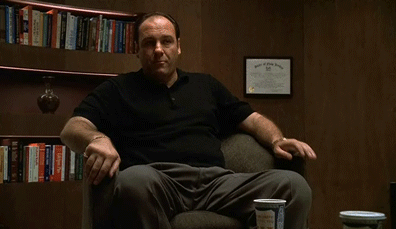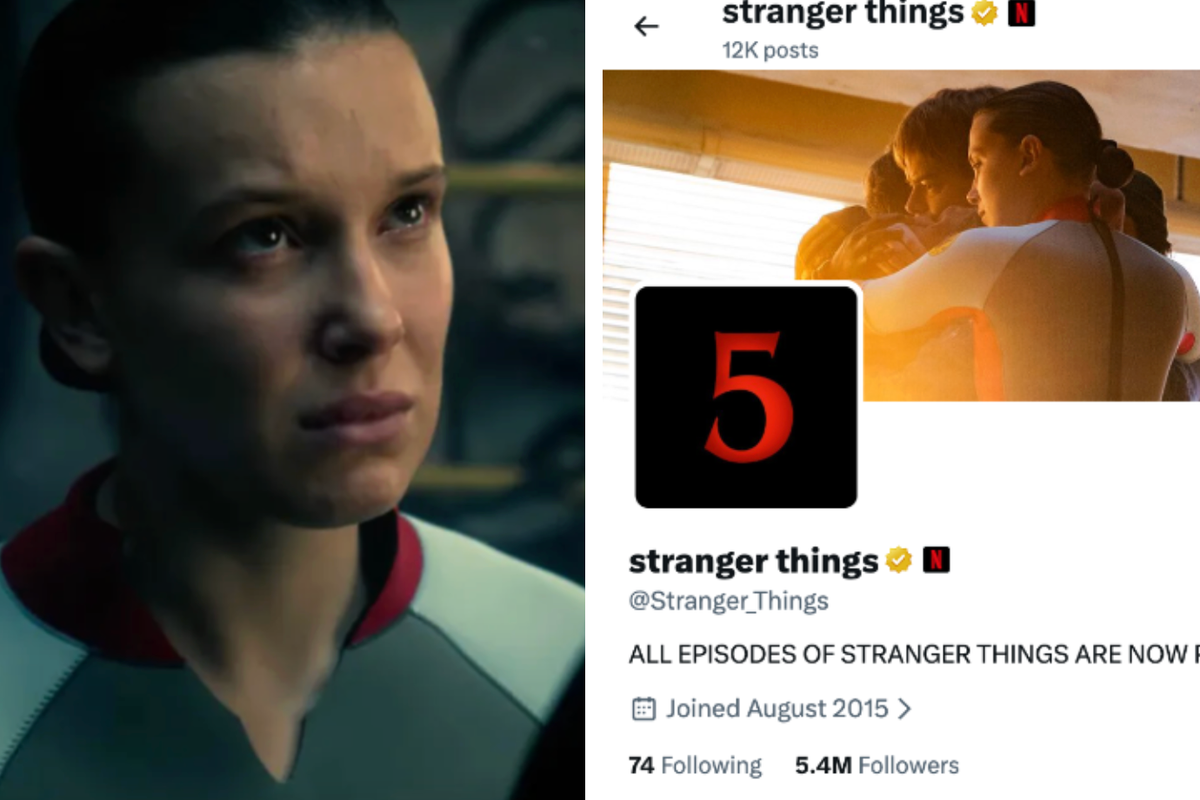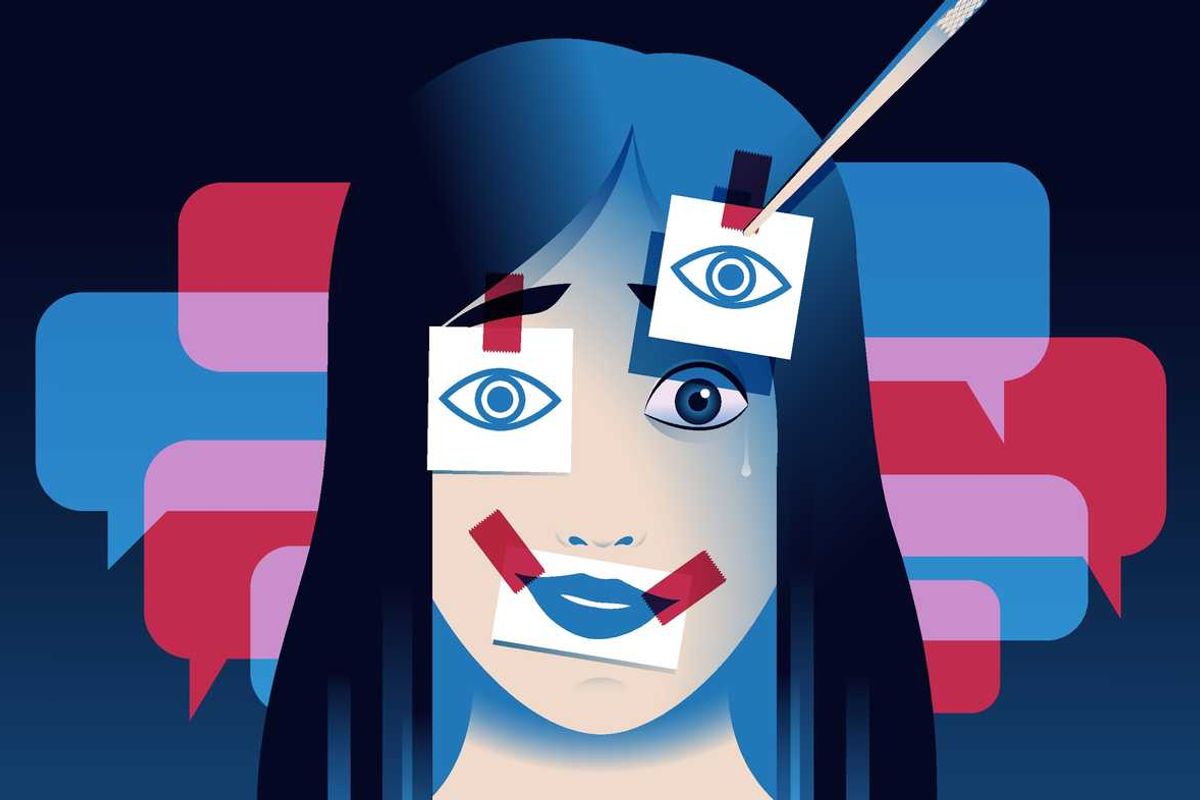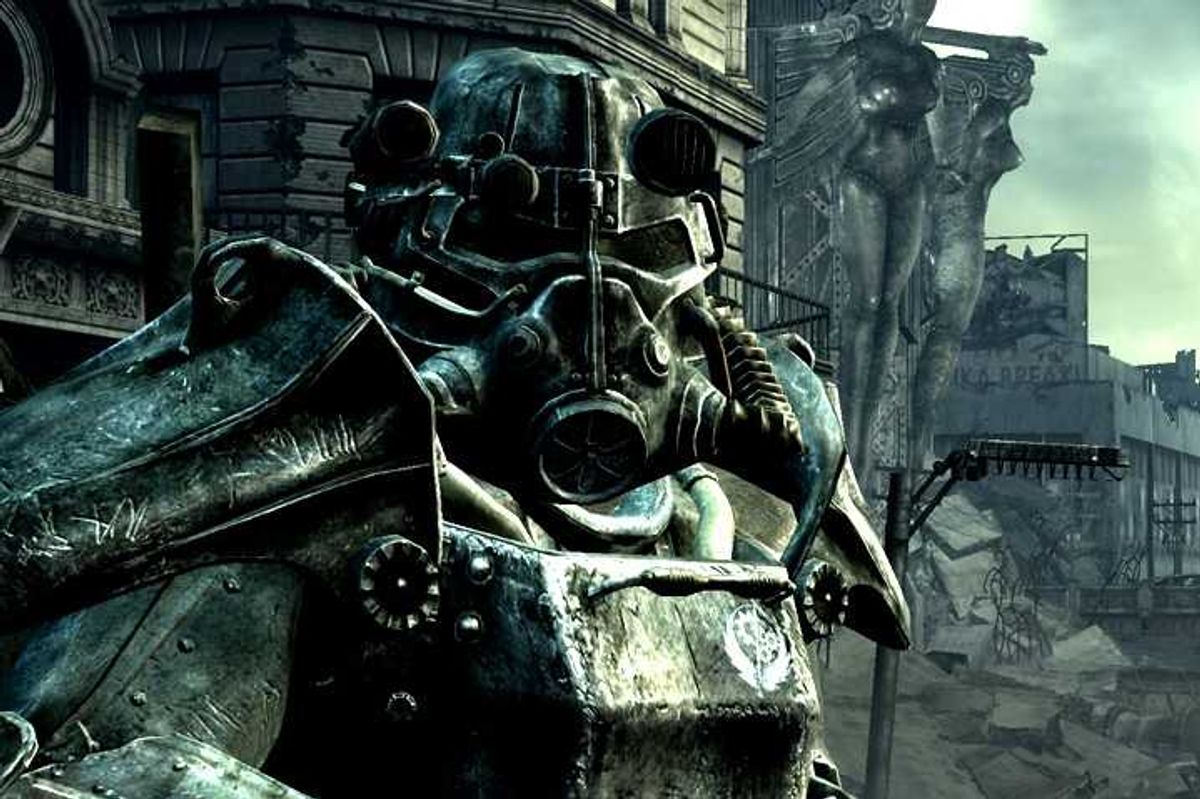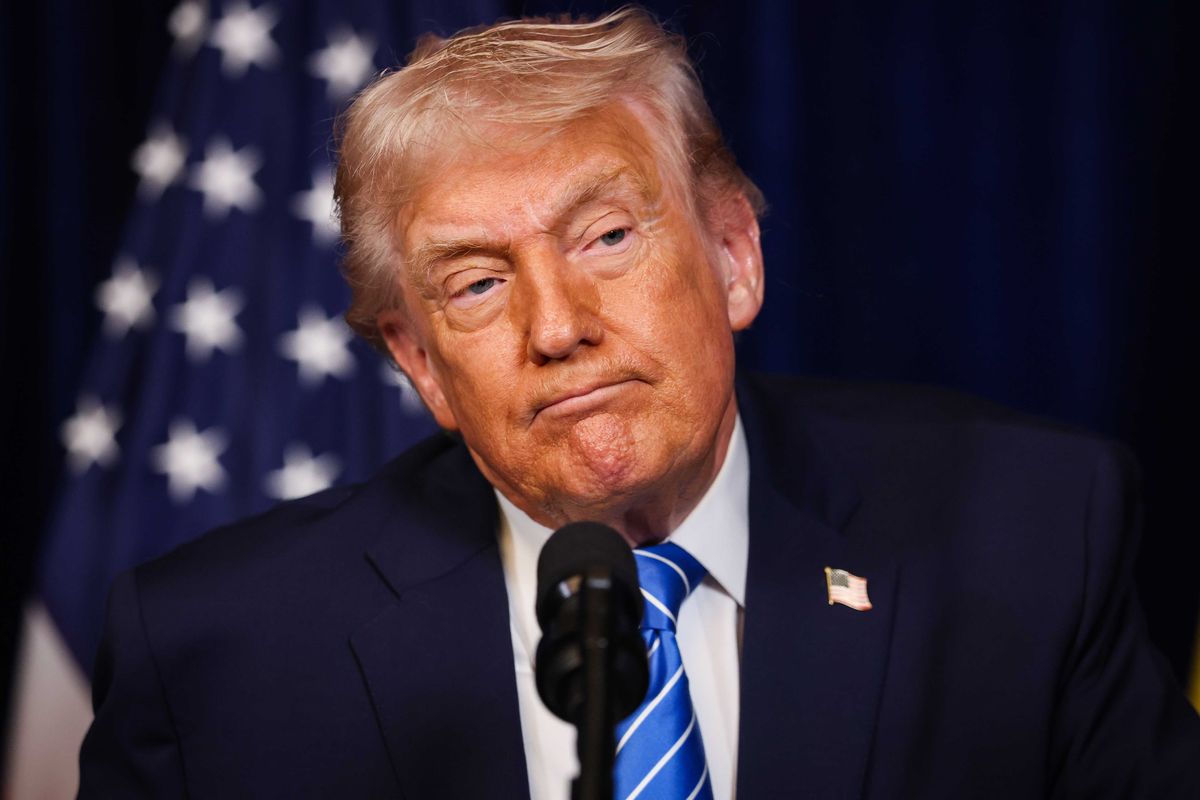News
Joe Vesey-Byrne
Jul 23, 2017
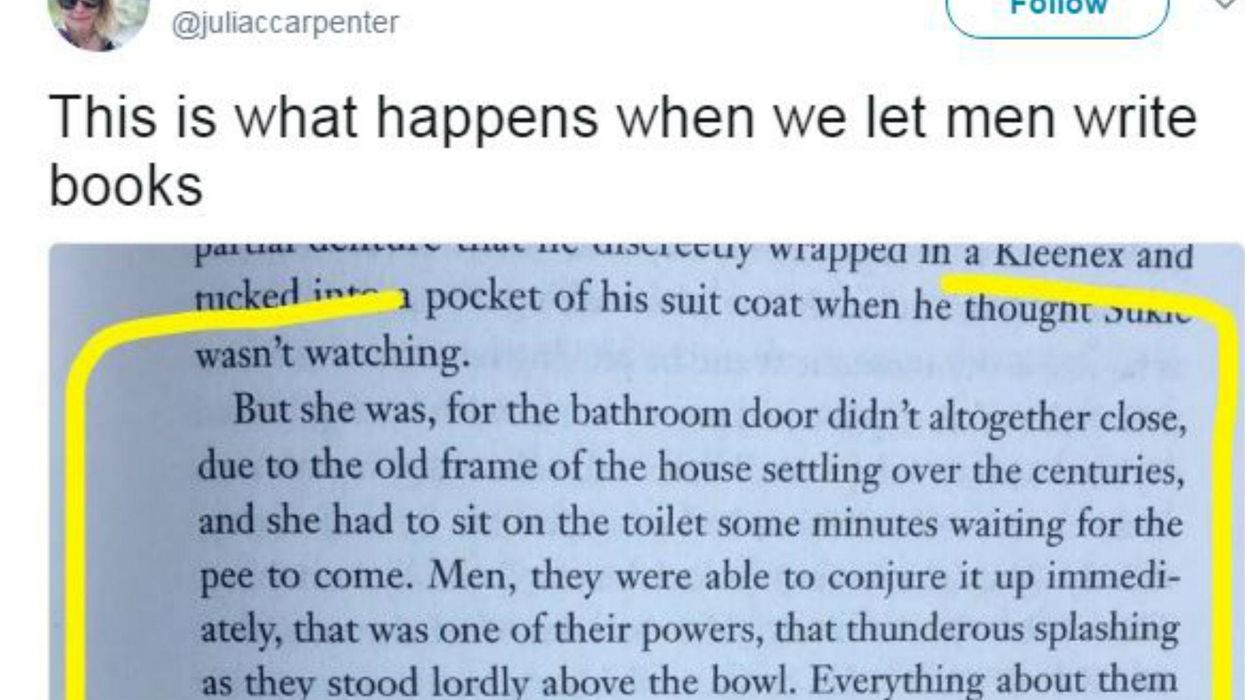
Picture:
@juliaccarpenter/Twitter
Warning: This article is about a bizarre description of urination. You have been warned.
What's the difference between men and women peeing? Is it their biology?
No, it's all about their confidence and directness, and how men are better at peeing than women. Full stop.
So suggests this passage of book that's being shared on Twitter.
...and she had to sit on the toilet some minutes waiting for the pee to come.
Men, they were able to conjure it up immediately, that was one of their powers.
Ah yes men, the 'Great Urine Conjurers'.
That thunderous splashing as they stood lordly above the bowl.
Lordly?
Everything about them was more direct, their insides weren't the maze women's were, for the pee to find its way through.
The post by writer and journalist Julia Carpenter, has been retweeted over 14,000 times since Friday night, and liked by nearly 40,000 users.
The passage is reportedly from The Witches of Eastwick by US author John Updike, first published in 1984.
In this story, three women gain magic powers when they leave, or are left by their husbands.
Avoiding too many spoilers, some of them end up using their powers to conjure up an ideal man.
So this passage about urinating is not an anomaly.
As well as the symbolism being such a ridiculous and sweeping generalisation, the science doesn't back it up.
Updike may have been writing as his character Suki, and satirising her idealisation of men.
But that doesn't excuse this passage, or the rest of his writing, or the idea of a 'maze' in a woman's body.
Making urination and divide between the sexes, why?
'Women's fiction'
As the author Susan Elizabeth Phillips once said:
When male authors write love stories, the heroine tends to end up dead.
The Updike passage has re-ignited a discussion about male authors writing female characters, and vice versa.
While plenty of male authors do write women characters 'well', some bad authors describe them sexually or like they're infants, in a way the author doesn't describe their male characters.
Some people felt the need to play the 'not all men' card on the feed, as if Carpenter's caption 'This is what happens when we let men write books' was a serious criticism.
The Bronte sisters and Mary Anne Evans (George Eliot) published under male pen names, and as late the 1990s J.K Rowling was recommended she use her initials in order to sell her Harry Potter books, in order to make sure it appealed to 'both boys and girls'.
On Monday the Wall Street Journal reported that the tables had been turned in the genre of psychological thrillers, and that male authors were adopting gender vague pen names in order to sell books.
Yay. Equality!
More: Time magazine released a list of leading female writers and still managed to include a man
Top 100
The Conversation (0)
